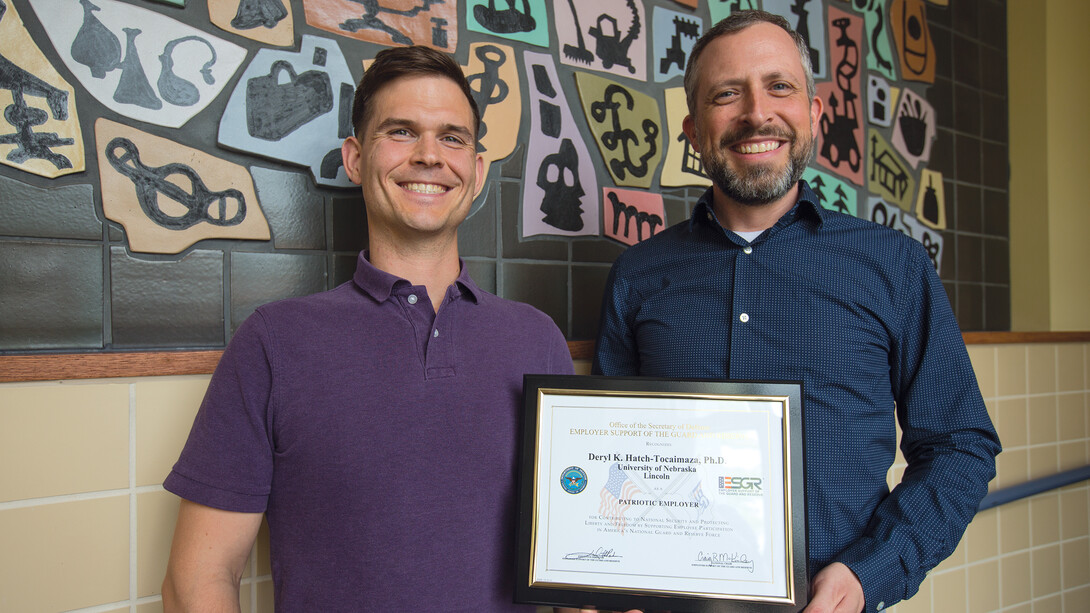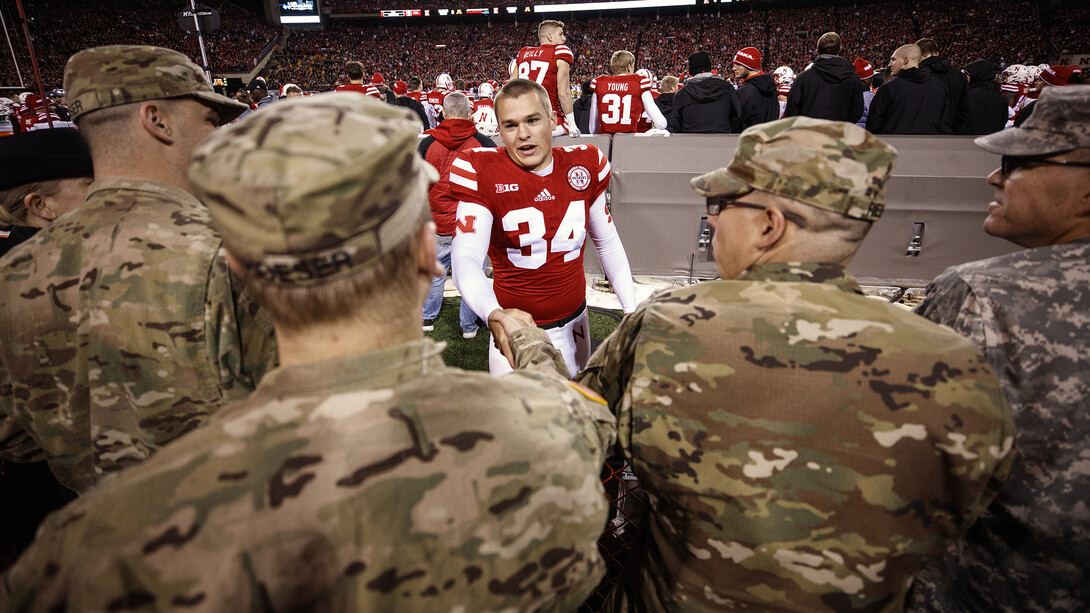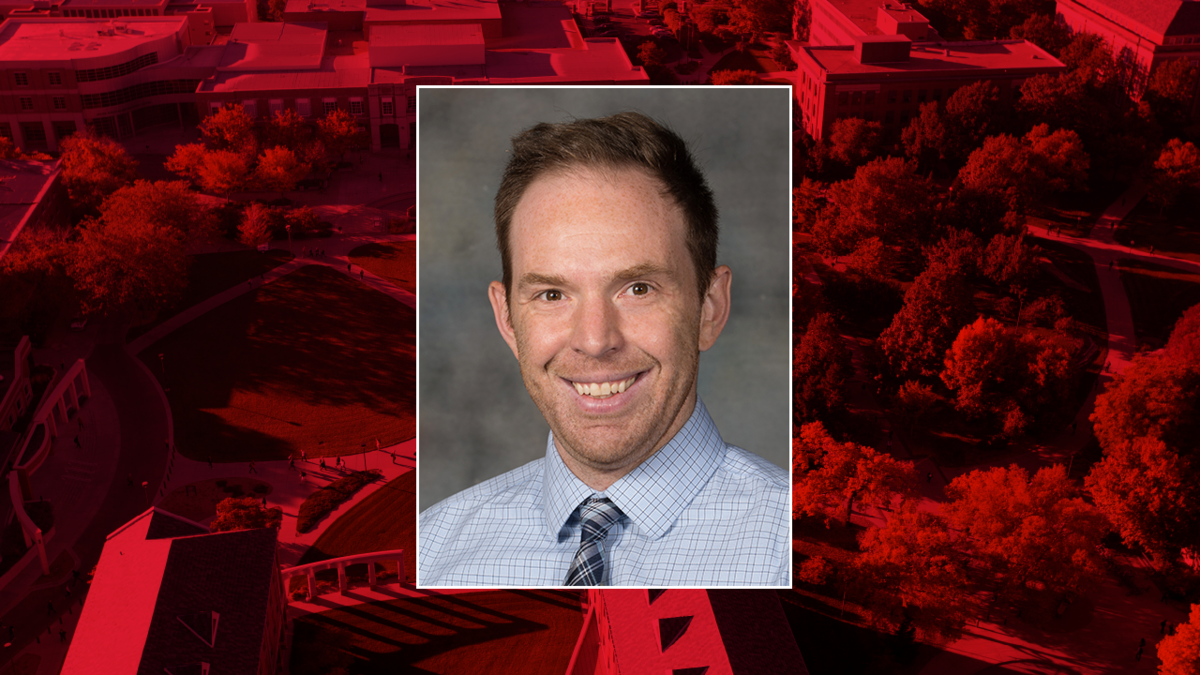
For Adam Fullerton, there has truly been no place like Nebraska in his pursuit of higher education.
A student veteran with nearly 12 years of service in the U.S. Marine Corps Reserve, Fullerton has struggled to balance demands of college coursework with the needs of family, military and full-time employment. Those ongoing battles led him to an area of research — higher education supports for military servicemembers — and necessary backing from Nebraska’s Deryl Hatch-Tocaimaza through the University of Nebraska–Lincoln’s educational leadership and higher education doctoral program.
“Through my work as an undergraduate and masters student, by and large, the expectation of professors at other institutions was for me to figure out a way to get around the requirements of my job and military service,” Fullerton said. “Here at Nebraska, Dr. Hatch is my adviser and he is working with me, making timelines flexible so I can balance my time and complete my degree.
“I’ve told Dr. Hatch this before, but his decision to work with me has literally changed the direction of my life. Without the flexibility I found here at Nebraska, earning my Ph.D. is not something I would have a chance to accomplish right now.”
For going above and beyond in supporting Fullerton, Hatch recently received a Patriotic Employer award from Office of the Secretary of Defense. The honor was presented through the Department of Defense’s Employer Support of the Guard and Reserve program.
Fullerton nominated Hatch for the honor due to his never-ending support, including assistance provided during the 2017 summer sessions.
“I took a class last summer with him and had to go to Latvia for three weeks of what was an eight-week course,” Fullerton said. “Connectivity was hit or miss at best, so Dr. Hatch adjusted the class schedule for me. That allowed me to focus on my reserve requirements and successfully complete the course.”
For Hatch, allowing that level of flexibility is standard operating procedure which helps cultivate success in the adviser/doctoral student relationship and related research projects.
“In my philosophy toward doctoral work, things like coverage of materials, assignment deadlines are a secondary concern,” Hatch said. “I tell doctoral students that their primary job is not to learn about important things. A person has a lifetime for that Their job is to learn how to ask and answer questions about important things.
“This is a process through which students become scholars. And, through that process, you need to cultivate the student and work together as a team to find success.”
That philosophy is also an extension of Hatch’s research into student engagement and how it should operate via a two-way exchange between the student and instructor/institution.
“Too often, we think about student engagement as only what students do,” Hatch said. “Actually, engagement should be defined by what the students do and how institutions foster the student experience.”
That line of thinking is, in part, what led Fullerton to pursue a doctoral degree from Nebraska.
“In my interviews with advisers at the different institutions where I was accepted, Dr. Hatch seemed like he really cared about students and their experiences,” Fullerton said. “And, he has a passion for making higher education more equitable for underserved populations, which include veterans. And so, it was a perfect match to pursue my research interests.”
“Those are the reasons why I chose and have found success at Nebraska.”
Learn more: Nebraska remains among nation’s best for veteran success








